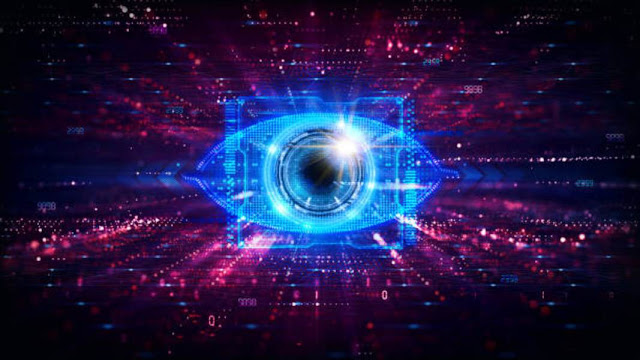Featured
- Get link
- X
- Other Apps
Computer Vision Technology
.jpg)
Computer Vision Technology: Revolutionizing the Beauty Industry
Introduction:
Computer Vision (CV) technology, a branch of artificial
intelligence, has emerged as a powerful tool with the potential to transform
various industries. Among these, the beauty industry stands out as one of the
sectors where CV technology is making a significant impact. By leveraging
sophisticated algorithms and image processing techniques, CV technology is
revolutionizing the way beauty products are developed, marketed, and used. This
article explores the role of Computer Vision in the beauty industry, its
applications, and the benefits it takes to both businesses and consumers.
Understanding Computer Vision Technology:
Computer Vision technology involves teaching computers to interpret
and analyze visual data from the real world, such as images and videos. It aims
to enable machines to comprehend and interpret visual information in a manner
similar to human vision. By using machine learning algorithms, neural networks,
and image processing techniques, CV technology can extract meaningful insights
from images and videos, making it an invaluable tool for various industries,
including beauty.
Applications in the Beauty Industry:
Virtual Makeup Try-On:
One of the most prominent applications of CV technology in
the beauty industry is virtual makeup try-on. Consumers can now use their
smartphones or computers to virtually apply makeup products and see how they
would look in real-time. This technology uses facial recognition and mapping to
overlay virtual makeup products accurately onto the user's face, allowing them
to try different shades and styles before making a purchase decision. This not
only enhances the shopping experience for consumers but also reduces the need
for physical makeup testers, contributing to improved hygiene in stores.
Skin Analysis and Diagnosis:
CV technology plays a vital role in skin analysis and
diagnosis. Advanced facial recognition algorithms can assess skin conditions,
identify blemishes, and analyze signs of aging. By capturing high-resolution
images of the skin, beauty professionals and consumers can gain valuable
insights into the skin's health and specific concerns. This information helps
in recommending personalized skincare products and treatments tailored to
individual needs, ultimately leading to improved skincare results.
Augmented Reality (AR) Beauty Filters:
Augmented Reality beauty filters have gained immense
popularity on social media platforms. CV technology powers these filters,
allowing users to experiment with different looks, from flawless skin to unique
makeup styles, in real-time. Beauty brands leverage AR filters to engage with
their audience, promote products, and create interactive campaigns that drive
brand awareness and customer engagement.
Beauty Product Recommendations:
CV technology enables personalized beauty product recommendations based on the user's features and preferences. By analyzing facial characteristics and previous purchase data, beauty brands can suggest the most suitable products for a particular individual, enhancing customer satisfaction and loyalty.
Benefits for Businesses and Consumers:
Enhanced Customer Experience:
CV technology significantly enhances the overall customer
experience in the beauty industry. Virtual try-on, personalized product
recommendations, and interactive AR filters provide users with a more engaging
and immersive shopping experience. This, in turn, boosts purchaser satisfaction
and fosters brand loyalty.
Efficient Product Development:
For beauty brands, CV technology streamlines product
development processes. By analyzing consumer preferences, skin types, and
trends, companies can create targeted and innovative beauty products that align
with customer demands.
Data-Driven Insights:
The data generated by CV technology offers valuable insights
into consumer behavior, preferences, and product usage. Beauty brands can
leverage this data to make data-driven decisions, optimize marketing
strategies, and tailor products and services to meet customer needs
effectively.
Cost Savings and Sustainability:
Virtual try-on technology reduces the need for physical
product samples and testers, leading to cost savings for beauty brands.
Additionally, by helping consumers choose products that align with their
preferences and skin types, CV technology minimizes product returns and waste,
contributing to a more sustainable beauty industry.
Challenges and Future Prospects:
While CV technology offers immense potential in the beauty
industry, some challenges remain. Ensuring accurate color representation,
accommodating diverse skin tones, and addressing privacy concerns are areas
that require ongoing attention and improvement.
Looking ahead, CV technology is expected to become more
sophisticated, allowing for even more realistic and personalized virtual
experiences. As it continues to evolve, beauty brands can expect to see a greater
integration of CV technology across various aspects of their businesses,
providing exciting opportunities to drive innovation and enhance customer
satisfaction.
Conclusion:
Computer Vision technology is revolutionizing the beauty
industry, offering a wide array of applications and benefits for both
businesses and consumers. From virtual makeup try-on to skin analysis and
personalized product recommendations, CV technology is reshaping the way beauty
products are developed, marketed, and experienced. As the technology continues
to evolve, the beauty industry can expect to witness further advancements that
will propel it into a new era of innovation and customer engagement.
- Get link
- X
- Other Apps
Popular Posts
Be Leveraging Mist Solutions to Drive Business Growth(2)
- Get link
- X
- Other Apps

Comments
Post a Comment